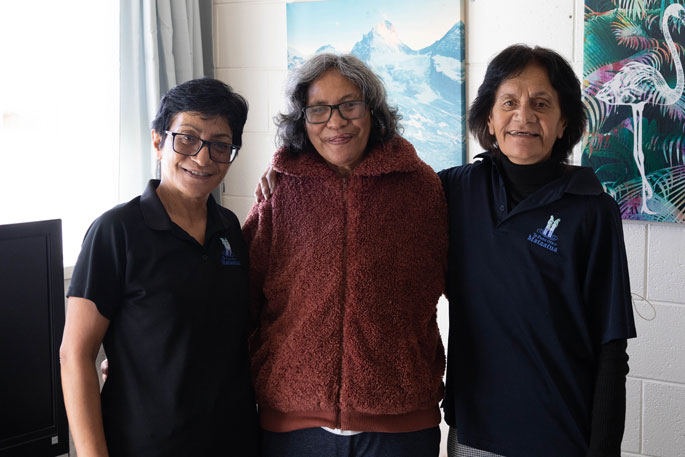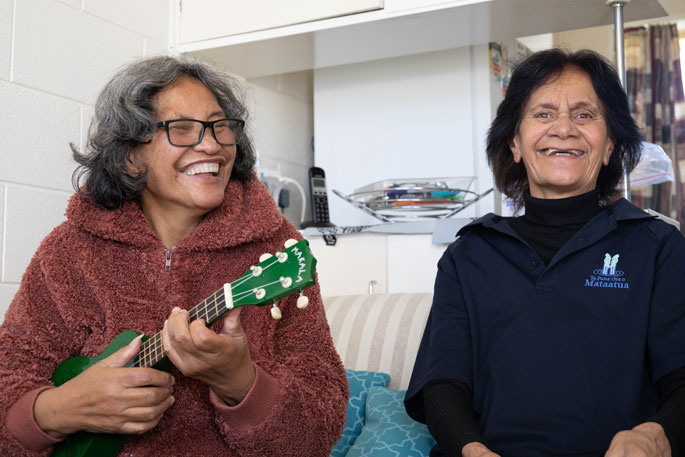Te Puna Ora o Mātaatua is hosting a recruitment day for potential in-home support workers to help address a regional-wide shortage in staff.
The organisation will be at Te Puke Memorial Hall, Te Puke, 8.30am to 12pm midday tomorrow and then at Basestation Tauranga from 1pm – 5pm.
The recruitment day is open to anyone interested in looking after their own whānau in their own home.
TPOOM manahautū kainga (home-based director), Peni Hillman, says if a person has the aroha (love) to stay home to look after a whānau member, and wants to access wraparound support, they are an ideal candidate for the support worker role.
'One thing Māori do really well is look after our own. We know a lot of whānau already stay at home to look after their kaumātua, so there's an untouched pool of staffing who aren't receiving services they're entitled to. We've also found whānau are returning home to Whakatane to look after their kuia and koroua but there's no mahi available, especially in our rural areas.”
Te Puna Ora o Mātaatua will host interviews at the recruitment day and share information on free in-house learning and support with gaining NZQA qualifications for support worker roles.

'People may not have experience but our kaimahi can get qualified on the job. As they become qualified, they gain increased pay rates for themselves. It's a wonderful opportunity to create employment and get qualified while looking after whānau at home. It opens doors to further pathways, such as nursing, social work, and other clinical careers.
'It takes a special kind of person with a heart for this kind of mahi to make sure things get done. That's our goal with the recruitment day and something our organisation aspires to, because creating mahi, creates income in the home. It creates motivation to do something else within the whānau, whether its caring for kaumātua, socialisation activities, getting them involved in the community, or heading back to the marae, as opposed to sitting at home.
'This type of mahi can connect whānau with other networks available to them. They also have some autonomy over how those supports are put in place. They're not being told they have to do this, or they have to do that. They can build the supports that align with their needs and values,” says Ms Hillman.



0 comments
Leave a Comment
You must be logged in to make a comment.